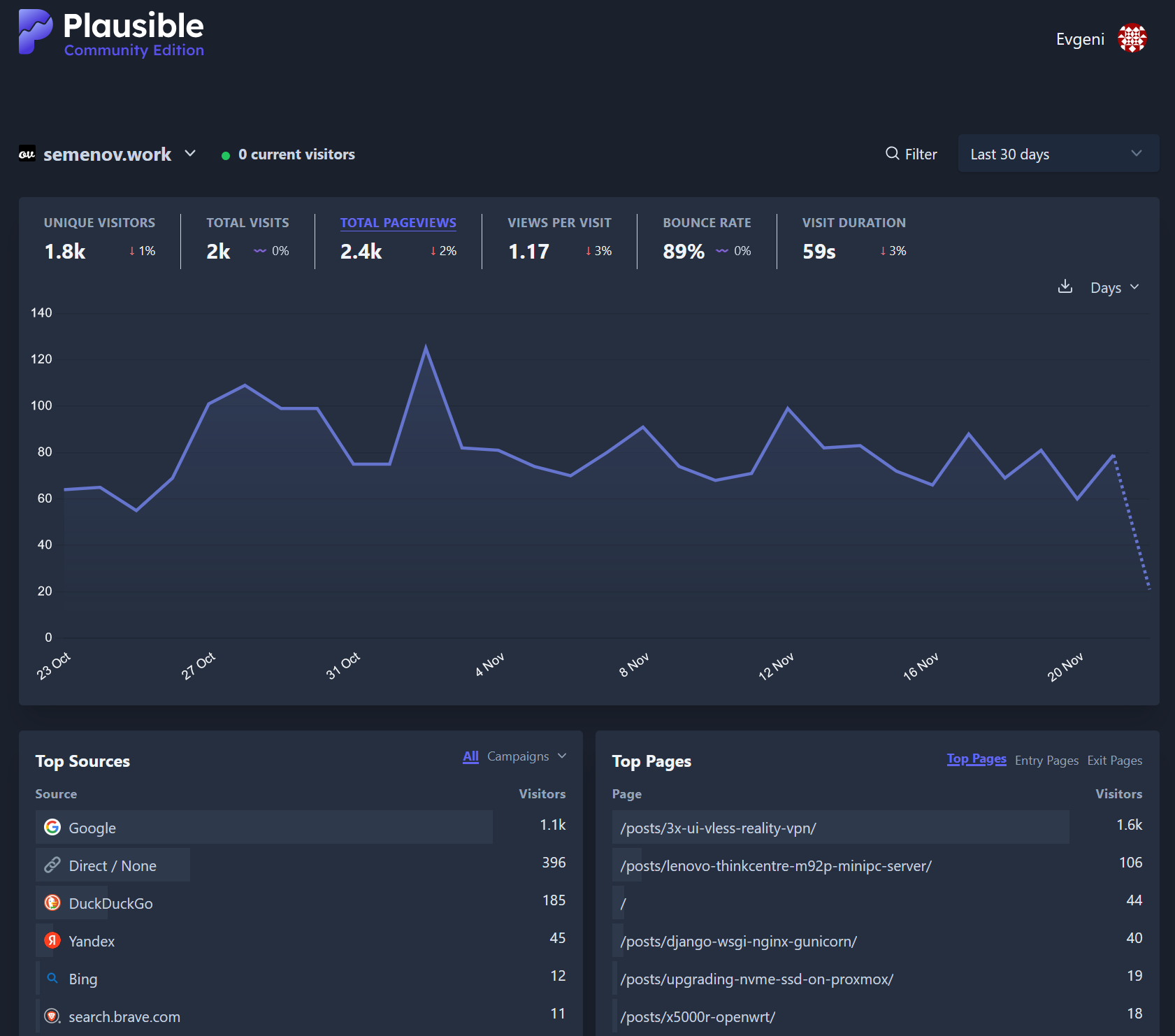When you start writing a blog or publishing anything online, it is valuable to know whether anyone even reads it. I wanted to add an analytics option to my blog but hesitated to use something like Google Analytics because it is highly invasive. Since I reside in the EU, there are also some GDPR considerations related to using analytics.
This led me to explore some options that promote privacy and don’t collect unnecessary data. There are quite a few open-source solutions available nowadays, but after some research, I decided to go with Plausible Analytics CS.
Plausible Analtyics CE (community edition)
Like many other open-source projects, Plausible offers a hosted version and a community edition that you can host yourself.
The community edition has undergone some changes recently, and the current version, which at the time of writing this post is v.2.1.4, is very easy to install. The process is well documented on Plausible’s GitHub page, so I will not go through it again in this post.
What surprised me the most is that if you use the default port settings and a valid domain name, Plausible will even acquire and update SSL certificates from Let’s Encrypt for you! This is a very nice option to have for those seeking a quick and easy out-of-the-box solutions. Of course, there is also documentation available on for several different reverse proxies - nginx, cloudflare, etc.
Pro tip! If you are looking for a domain name option which is cheap to renew, consider numeric .xyz domains. They cost only 0.99$ to renew annually.
Insights and statistics after one month of usage
I’ve used Plausible for a while now and was actually quite suprised about how many hits does my blog get despite the fact that I do not promote it anyhow.

Overwhelmingly, most of the hits are for a blog post about setting up vless reality VPN on 3x-ui. Clearly, a lot of people found this topic interesting.
Something to consider in the future is documenting and posting information about stuff that is not so well documented elsewhere.
Future considerations
After adding analytics the next obvious step would be to add a commenting system to receive some feedback. I have searched through some options, but still in search of something easy and convenient to implement into Hugo.
If you have any ideas, feel free to drop me an e-mail or send a message via LinkedIN.